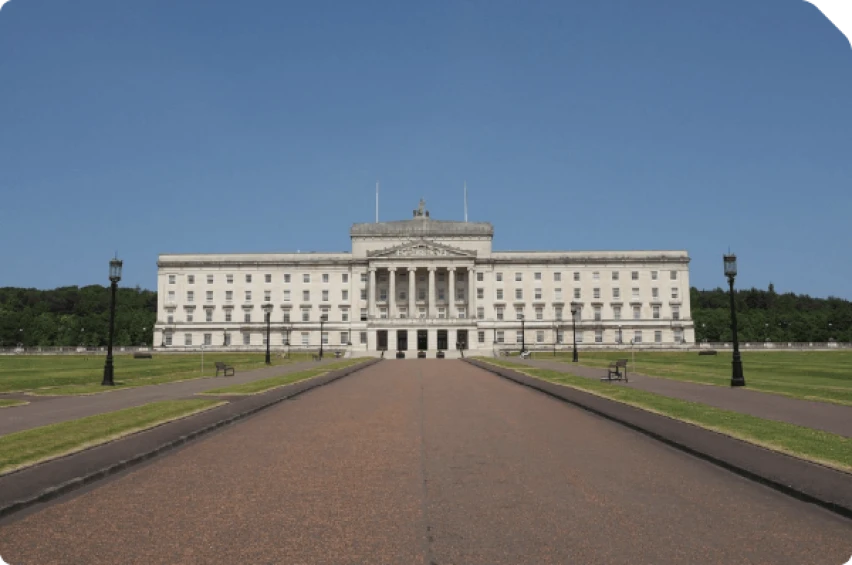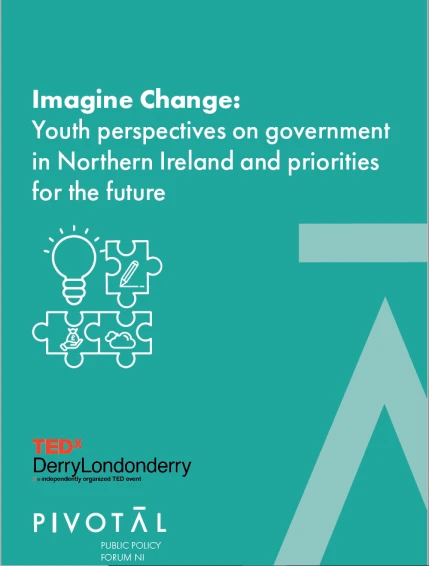
Westminster’s imminent Spending Review will set the social and economic tone for the whole of the UK. Its implications for Northern Ireland will be significant – as will the Executive’s decisions about the funding it receives.
Chancellor Rachel Reeves’ announcement on Wednesday 11 June will signal the Labour Government’s priorities for the rest of this mandate and set funding allocations for the next three years. This settlement is intended to give stability to government departments and provide time and space to plan spending, investment and reform.
We can expect it to underline the UK Government’s commitment to boosting economic growth through investment in infrastructure, skills and green energy. Health and defence are also set for uplifts but, outside of this, increases in day-to-day spending will be limited.
The Government is aiming to balance sufficient funding to improve public services against adherence to its fiscal rules (which basically limit current spending, while giving more leeway for capital allocations). It also remains hamstrung by pre-election commitments not to raise income tax, employee National Insurance or VAT – all political choices that face growing opposition from those who favour greater investment.
These UK-wide dynamics will directly impact Northern Ireland which, using the Barnett formula, receives a population-based share of comparable funding increases in England, worked out on a department-by-department basis. After a change agreed last year, this amount will be raised by 24% if the total funding falls below the assessment of Northern Ireland’s relative need. However, the resulting block grant can be allocated as the Executive decides, without having to mirror spending in England.
In recent months, the Finance Minister has been negotiating details with the Treasury – including on two key requests from Northern Ireland. The Executive is seeking agreement that local ‘need’ for public spending compared to England is higher than the 124% previously determined and, separately, that a baseline adjustment is required to stave off a funding cliff-edge in 2026-27 (created by the 2024 financial package).
John O’Dowd will press for both points to be accepted. The Treasury won’t be keen on either.
Other, more specific requests include funding for Casement Park, extra cover for the increased costs of doing business, Housing Executive borrowing powers, agricultural support funds, and inheritance tax.
Ultimately, the Spending Review will set Northern Ireland’s total block grant. After that, the question becomes what Stormont will do with its budget.
The Executive should develop a draft three-year budget that can be consulted upon later this year, and debated and voted on by the Assembly early in 2026. If all goes to plan, this would be the first multi-year budget agreed for Northern Ireland since 2011- 15.
Based on indications about the settlements for UK Departments, the Barnett formula is likely to result in relatively little new funding for day-to-day services in Northern Ireland, alongside a much larger increase to capital funding. Anyone hoping for big real-term uplifts in current spending is likely to be disappointed.
Regardless, this is a big moment for Northern Ireland’s public finances. A three-year settlement offers an opportunity for the Executive to take a longer-term look at what it funds and how.
An Executive overspend was only avoided last year by an unexpectedly large injection of funding in the October Budget, while the Health Minister is already predicting an overspend of £600 million within his department this year. These repeated budget crises are unsustainable. A more stable funding position, which allows the Executive to think strategically about the future, is essential.
Multi-year budgets must be passed on by the Executive to its Departments and the organisations funded by them, including the voluntary and community sector. This allows everyone to get the benefits of renewed stability. These funding allocations should reflect the Programme for Government priorities, although we have yet to see the PfG making much of a difference to how funding is divided between departments.
The current structure of public services is unaffordable. Transformation is essential and long overdue. It’s time for Northern Ireland’s politicians to take the difficult but necessary decisions to deliver services in more cost-effective ways, particularly in the health service, through both reconfiguration of how and where services are provided and a greater use of technology.
The predicted large injection of capital funding will be welcome but still needs to be spent wisely to address some of Northern Ireland’s biggest problems in water infrastructure, social housing and public transport. Parallel capital funding in Great Britain is being used for generational projects that will transform infrastructure, transport and green energy and, while there are ongoing local problems that need to be fixed, Northern Ireland also has to show ambition for the future. In this context, it’s concerning that the long-awaited Investment Strategy has still not been published by the Executive.
Local productivity is amongst the lowest of UK regions and our economic inactivity is the highest. Investing in skills, good jobs, innovation and infrastructure can benefit everyone.
Finally, this might also be an opportunity for the Executive to ask some more fundamental questions about how public services here are financed. Northern Ireland gets no funding for water through the Barnett formula, since elsewhere in the UK, water is paid for by charges on consumers. Stormont’s ongoing decision to fund the local water system from the block grant means less for health, education, policing and other public services. It might be time to consider if this is still the right political choice.
The Spending Review will provide the Executive with an opportunity for investment and reform. The current state of public services means they have to use this chance wisely.
This article first appeared in the Business Telegraph on 3 June 2025
Photo Credit: Flickr | Number 10










